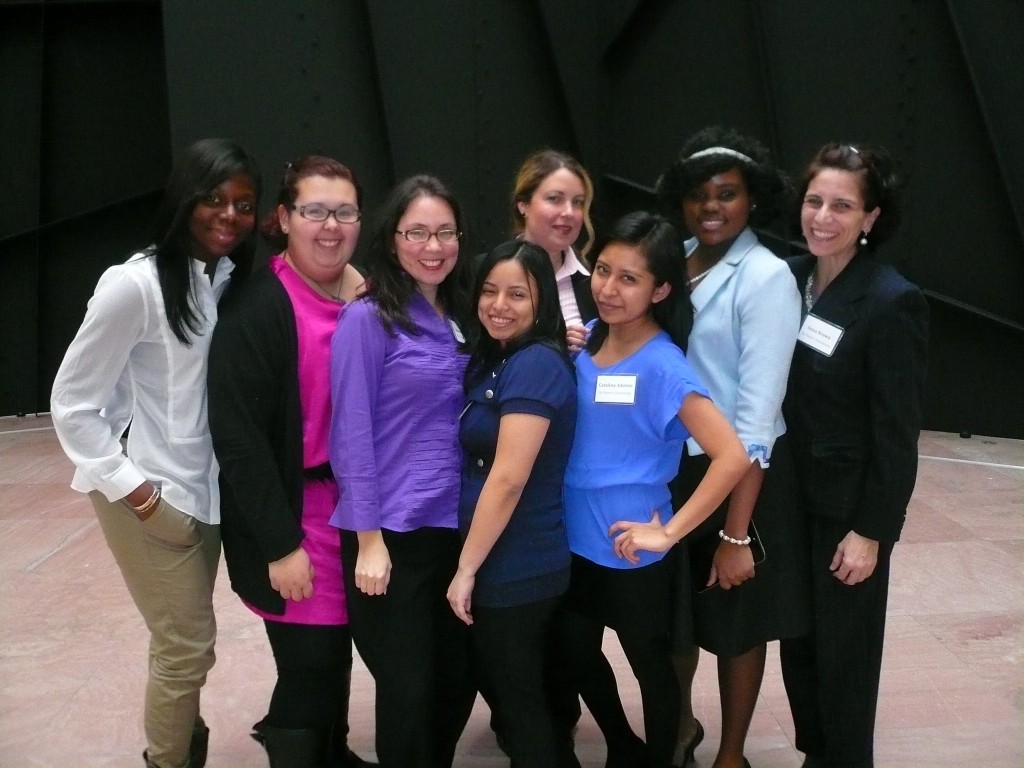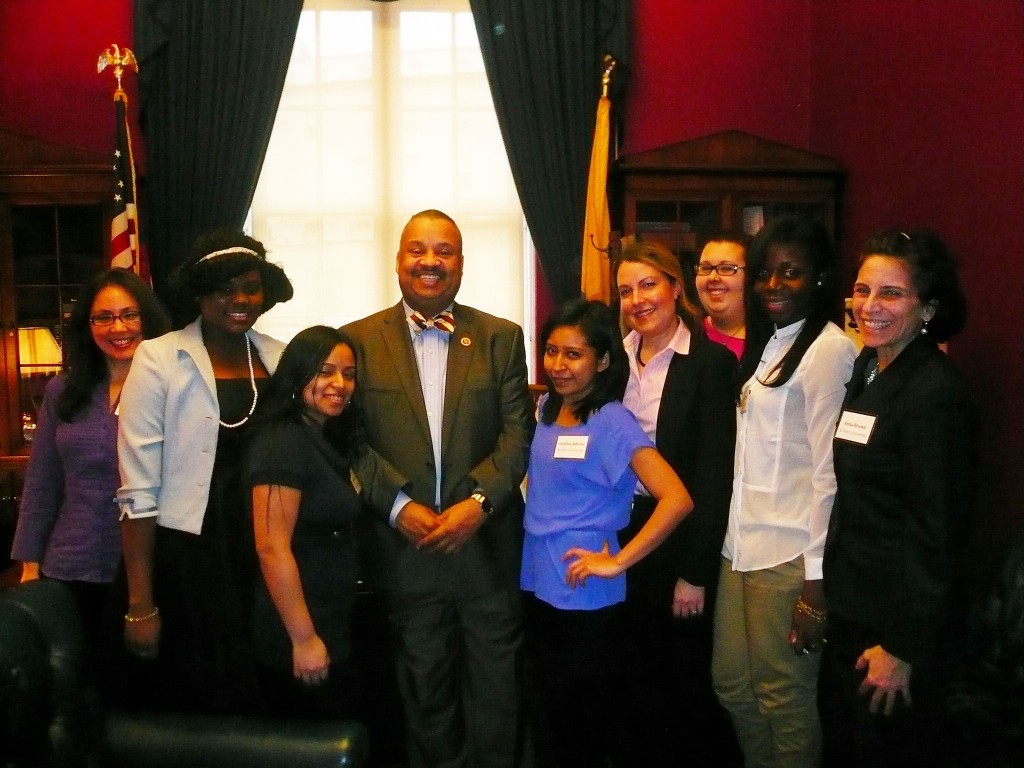 Earlier this year, representatives from Saint Peter’s University attended “Immigration: Undocumented Students in Higher Education,” an information session on undocumented students
Earlier this year, representatives from Saint Peter’s University attended “Immigration: Undocumented Students in Higher Education,” an information session on undocumented students
at Jesuit institutions of higher education and institutional practices that affect these students. The event, held in the Dirksen Senate Office Building in Washington D.C., was the culmination of a Ford Foundation-funded two-year study led by Fairfield University’s Center for Faith and Public Life in Connecticut, and co-authored by Loyola University Chicago’s Center for Urban Research and Learning and Santa Clara University in California.
Executive Director for the Guarini Institute for Government and Leadership Nicholas A. Chiaravalloti, J.D., Associate Professor of Political Science Anna Brown, Ph.D., Associate Professor of Education Jennifer Ayala, Ph.D., and students Gabrielle Sepulveda ’14, Catalina Adorno ’13, Bernadette Sylla ’14, Fiorella Cacho ’14 and Marichka Milord ’15 joined more than 50 Jesuit university and college presidents, faculty and students at the event.
“Immigration status is an issue that is very familiar to us all for we are either immigrants, or know family members or close friends who are immigrants,” said Sylla. “This study goes beyond the scope of studying immigration statistics and towards the moral advocacy of helping undocumented immigrants gain a sense of welcome, belonging and assistance.”
“It was a wonderful experience,” added Cacho. “I know people who have experienced struggles because of their immigration status. What interested me the most about the program was the fact that we were able to gain first-hand knowledge on the topic of immigration, share our experiences and talk about the things that we want to do to help.”
The study, titled “Immigrant Student National Position Paper,” suggests a new model of leadership in higher education for the undocumented student. Spearheaded by the legal and social science teams of the project’s lead institutions, the study aimed to answer the following questions: “What are the practices, attitudes, challenges and opportunities in current institutions? How do current federal and state laws and practices impact the undocumented student’s college experience? How can a committed network of Jesuit higher education institutions join together to work collaboratively to support the human dignity of undocumented students who find themselves adrift in a world hostile to their future because of a past they did not choose for themselves?”
Recently, 25 Jesuit university and college presidents – including Saint Peter’s University President Eugene J. Cornacchia, Ph.D. – signed a moral statement “in regard to the presence of undocumented individuals as students” within their institutions. The document supports the belief that “every human person deserves dignity and the opportunity to better one’s state in life,” recognizes that “the history of Jesuit institutions of higher education in this country is inextricably linked to first and second generation immigrant populations,” and promises the continuation to “affirm that Jesuit colleges and universities are morally committed environments where students are inspired and encouraged to understand and address issues on justice, fairness, political involvement, and a preferential option for those whom society has marginalized.”
Also as part of the Washington D.C. trip, the representatives from Saint Peter’s visited with New Jersey senators and representatives to voice their support for Comprehensive Immigration Reform (CIR). Students met with staff members from Senator Frank R. Lautenberg’s and Senator Robert Menedez’s ’76 offices, and also convened with Congressman Donald M. Payne Jr. and Congressman Albio Sires ’74 personally.
 “Our goal was to influence them to push for Comprehensive Immigration Reform instead of the ‘piece meal’ approach in order to resolve the widespread issues of broken/separated immigrant families, talent wasted due to lack of financial aid for undocumented students and exploited immigrant workers,” said Sylla.
“Our goal was to influence them to push for Comprehensive Immigration Reform instead of the ‘piece meal’ approach in order to resolve the widespread issues of broken/separated immigrant families, talent wasted due to lack of financial aid for undocumented students and exploited immigrant workers,” said Sylla.
Dr. Brown, who attended both events, commended the University’s students on their presentations to government officials. “Our students who met with their congressional representatives were truly magnificent,” she said. “They well-articulated the merits of Comprehensive Immigration Reform while at the same time ensuring that what’s most important, the humanity of each immigrant individual, remained at the center of their stories.”
She added, “Our work in Washington D.C. on behalf of undocumented students and for Comprehensive Immigration Reform is work that is centered in the mission, and heart I would add, of our University. The student population of Saint Peter’s University is, in large part and proudly so, immigrant. There is nothing better we can do than to use our intellectual gifts in service to the well-being of those who are vulnerable.”
